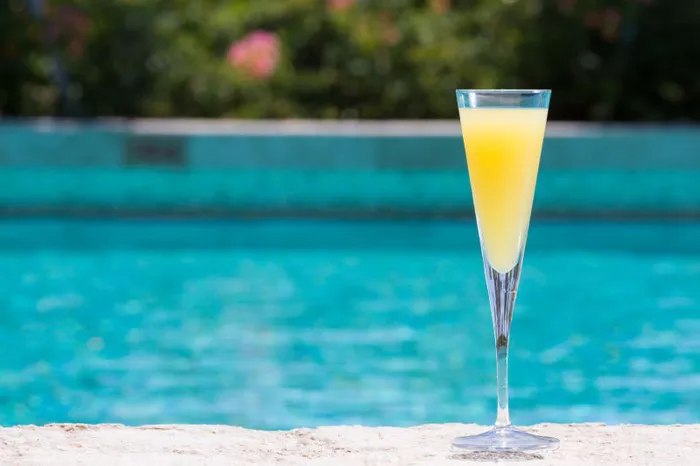What is the origin of cocktails? The question, steeped in the rich tapestry of human history, invites us on a fascinating expedition through time, culture, and mixology. The origins of cocktails, while often shrouded in myth and speculation, trace back to a captivating blend of global influences, evolving from medicinal tonics to sophisticated social libations. Delving into the annals of history unveils an intriguing narrative that weaves through centuries and continents, ultimately shaping the beloved concoctions we cherish today.
Early Beginnings: Origins Rooted in Necessity
To discern the roots of cocktails, we must journey back to the 18th century. The term “cocktail” finds its initial recorded usage in America in 1806, described as a blend of spirits, bitters, sugar, and water. However, the genesis of mixed drinks predates this formal nomenclature by centuries. The earliest manifestations of cocktail-like beverages emerge from the necessity to improve the taste and potency of crude spirits.
Sailors of yore, navigating the seas in pursuit of exploration and trade, concocted rudimentary mixtures to make their alcoholic provisions more palatable. Spirits, such as rum, were often harsh and unrefined. To mask their pungency, sailors combined them with spices, citrus fruits, and sweeteners. These early amalgamations, while not labeled as cocktails, laid the groundwork for the art of mixing drinks.
In the annals of history, medicinal tonics constituted another pivotal precursor to cocktails. Herbal remedies, infused with spirits, were prescribed by apothecaries and physicians as curatives for various ailments. These elixirs, blending spirits with botanicals and herbs, eventually evolved into more pleasurable libations, forming a bridge between medicine and mixology.
Cultural Influences: A Tapestry of Global Traditions
The origin of cocktails transcends borders, entwined with diverse cultural practices and traditions across continents. The narratives of different civilizations intermingle, contributing unique elements to the evolution of mixed drinks.
The early 17th-century British taverns fostered the popularity of punches—communal drinks crafted from spirits, fruits, spices, and sugar. These communal concoctions, often served in ornate bowls, became emblematic of convivial gatherings, with their recipes spreading across Europe and later influencing the cocktail culture.
Across the Atlantic, in the colonial landscape of America, the cocktail narrative gained momentum. The bustling port cities, such as New York and New Orleans, served as melting pots of cultural exchange. Influences from European settlers, Native American ingredients, and the introduction of Caribbean spirits created a dynamic environment for the emergence of innovative mixed drinks.
Meanwhile, in the Caribbean islands, the fusion of local ingredients like sugarcane, rum, and tropical fruits birthed libations that would later permeate cocktail culture globally. The iconic ‘Ti Punch from Martinique and the Daiquiri from Cuba are but a few examples that demonstrate the Caribbean’s enduring contribution to mixology.
See Also: What Cocktails Can Diabetics Drink: Navigating Safe and Enjoyable Choices
The Evolution: From Saloons to Sophisticated Bars
The 19th century witnessed a pivotal shift in the culture of drinking, as the concept of cocktail-making transitioned from rudimentary taverns to more refined establishments. The emergence of cocktail-specific bars and saloons marked a transformative era, characterized by the professionalization of bartending and the codification of drink recipes.
The publication of seminal cocktail guides, such as Jerry Thomas’ “The Bartender’s Guide” in 1862, solidified the foundations of mixology. These compendiums not only documented recipes but also showcased the artistry and creativity involved in crafting cocktails. Bartenders became revered artisans, concocting bespoke libations tailored to individual tastes.
The Prohibition era in the United States, spanning from 1920 to 1933, profoundly impacted the cocktail landscape. While the ban on alcohol production and distribution was intended to curtail drinking, it paradoxically fueled the rise of speakeasies—clandestine establishments where patrons indulged in illicit cocktails. The era birthed iconic concoctions like the Sidecar, the French 75, and the Last Word, cementing their place in cocktail lore.
Modern Innovations: Craft Cocktails and Global Influence
As we traverse into the contemporary era, the cocktail scene continues to evolve, characterized by a renaissance of mixology. The resurgence of interest in artisanal, handcrafted cocktails has propelled the industry to new heights. Bartenders, akin to chefs, experiment with novel ingredients, techniques, and presentation styles, pushing the boundaries of traditional recipes.
Furthermore, the globalization of cultures has led to a cross-pollination of drink-making traditions. Asian ingredients like matcha, yuzu, and soju have found their way into modern cocktails, infusing them with unique flavors and nuances. Similarly, Latin American spirits such as mezcal and pisco have gained prominence on the global stage, enriching the diversity of available libations.
The advent of molecular mixology has revolutionized the craft, introducing innovative methods that deconstruct and reconstruct classic cocktails. Techniques like foams, gels, and infused airs showcase a marriage between science and artistry, offering patrons multisensory drinking experiences.
Conclusion: A Tapestry of Tradition and Innovation
In conclusion, the origin of cocktails is a tale woven from threads of tradition, necessity, and innovation. From humble beginnings as remedies and sailor’s swills to the sophisticated concoctions of today’s mixology, cocktails embody a cultural mosaic reflective of diverse societies and their culinary heritage.
The journey through the history of cocktails reveals a continuum of creativity and adaptation, where each era and culture contributes its unique imprint to the evolving narrative. As bartenders continue to push the boundaries of experimentation and flavor combinations, the allure of cocktails remains timeless—an art form that encapsulates history in a glass, inviting enthusiasts to savor not just the drink but the heritage it embodies.


